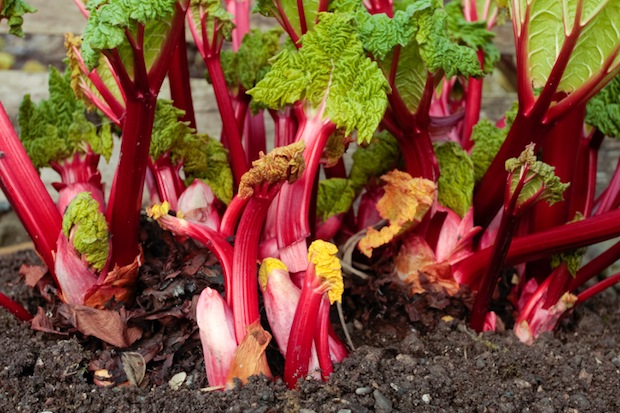When the BBC proposed to do away with 6 Music a few years ago, the media-savvy fans of the station created such a fuss on Twitter and Facebook that the Corporation caved in. Threat of closure was exactly what the station needed to grow its listener-base, now almost as big as Radio 3, and growing (up to 1.96 million per week in the latest Rajar figures, as opposed to Radio 3’s 1.99 million). The Asian Network, too, has flourished after suggestions that it would also have to be shut down if the BBC was to survive financially in the new digital age. But what’s good for them has now spelt doom for BBC3 (at least as a ‘linear’ channel) and further cuts are forecast. Which station will face the chop next time? Or will the BBC instead take the momentous step of agreeing to abolish the licence fee in favour of a subscription scheme?
It’s beginning to seem inevitable. How else can the BBC afford to keep up with an expanding technological world? But what would subscription funding mean for niche programmes like Radio 4’s On Your Farm? Would it disappear from the schedules?
It was back with a new series on Sunday, and for those up early enough to catch it there was one of those spooky radio moments when everything else stopped still as a sound like no other filled the room. Caz Graham was in west Yorkshire in the heart of the Rhubarb Triangle to witness the growing of the pink stuff.
‘It’s a bit church-like,’ she told us as she walked into one of the huge pitch-dark sheds accompanied by rhubarb-grower Janet Oldroyd Hulme. The shed, explained Graham, is lit throughout by candles placed on sticks among the rows and rows of spindly pink stalks topped by floppy, anaemic-looking, pale-yellow leaves.
I’ve never seen a rhubarb shed but I’ve always wondered about them. It seems such a weird idea — to force rhubarb to grow in winter by planting the roots in sealed-off, black-as-night sheds. It always sounded rather barbarous to me, those innocent bright-pink stalks being forced to grow so fast when everyone else is hibernating.
‘You’re tricking the plant into thinking it’s spring,’ says Graham, ‘so you can get rhubarb that you can sell in the shops much earlier than the outdoor crop.’ Oldroyd Hulme has no conscience about it. Her family has been farming the vegetable for five generations. ‘That beauty captivates you in there,’ she says, all those pink stalks gleaming in the dark. No photosynthesis occurs, she explains. The growth all depends on the energy in the root, carefully prepared for two years before planting in the sheds.
Many of the rhubarb growers of west Yorkshire went bust in the lean postwar years when no one ate the stuff (there were once 200 of them). Now, though, rhubarb is back on trend, with protected status as ‘one of the élite foods of Europe’, and Oldroyd Hulme is one of 11 very proud survivors.
‘Is it true you can actually hear the rhubarb growing?’ asks Graham.
‘Yes,’ says Oldroyd Hulme, adding that the earliest varieties grow up to an inch in a day.
She goes very quiet in the darkness of the shed, filled with 17,000 emerging stalks. A strange whooshing sound comes over the airwaves, lasting for perhaps just a second.
‘I heard one,’ shrieks Graham in a voice tinged with terror. ‘It’s a bit like the Triffids,’ she adds.
Over on Radio 2, Nitin Sawhney Spins the Globe is back for another series. You might think Sawhney with his incredibly eclectic music from around the world would fit better with 6 Music but 2 is keen to broaden its reach and develop a rich landscape of sound. How better to justify its funding?
Sawhney is a brilliant performer and composer but he’s not, like Bob Dylan or Jarvis Cocker before him, a natural radio voice. He doesn’t have their knack of caressing the microphone, but rather speaks at it, too fast, with not enough modulation. His enthusiasm, though, and love of music of any kind are irresistible and even if he plays something you don’t much like it would be a mistake to reach for the off button as you’re bound to miss something unmissable.
On Monday we had the singer-songwriter John Martyn’s ‘Don’t want to know’ alongside Miriam Makeba’s haunting ‘Khawuleza’ and an interview Sawhney had with Nelson Mandela back in 2001. Sawhney asked the predictable questions (‘Those 27 years in jail — were they worthwhile?’ and ‘How did you overcome the bitterness?’) and Mandela replied in ways that were just as predictable, for him, if not for anyone else (‘I don’t think it can be said that I have achieved anything as an individual’; ‘There is no time to waste about the past’). But then he did something remarkable. An aide interrupted the interview telling Mandela that President So-and-so was on the line. ‘Ask him to phone me in five minutes,’ he said, giving Sawhney time for two more questions.
Got something to add? Join the discussion and comment below.
Get 10 issues for just $10
Subscribe to The Spectator Australia today for the next 10 magazine issues, plus full online access, for just $10.
You might disagree with half of it, but you’ll enjoy reading all of it. Try your first month for free, then just $2 a week for the remainder of your first year.














Comments
Don't miss out
Join the conversation with other Spectator Australia readers. Subscribe to leave a comment.
SUBSCRIBEAlready a subscriber? Log in